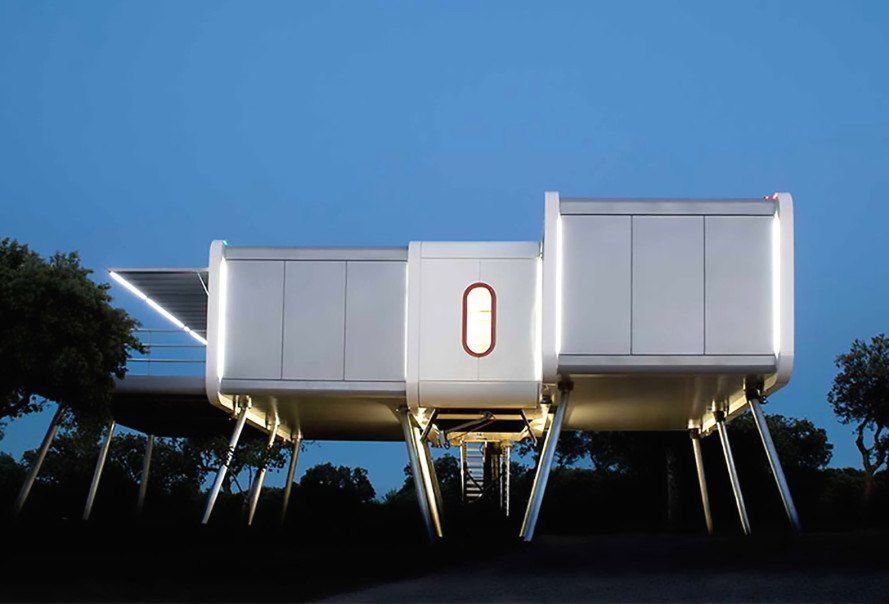
Futuristic modular spaceships are a cutting-edge advancement in spacecraft technology that offer unparalleled versatility and adaptability for space exploration. These innovative vessels are designed with a modular structure that allows for easy customization and reconfiguration to meet the specific needs of different missions and environments. Each module serves a unique function, whether it be living quarters, research labs, propulsion systems, or cargo storage. This modular design allows for rapid assembly and disassembly, making it quick and efficient to switch out modules depending on the mission requirements. Additionally, futuristic modular spaceships are equipped with state-of-the-art technologies such as advanced artificial intelligence systems, renewable energy sources, and faster-than-light travel capabilities. This combination of flexibility, efficiency, and advanced technology makes futuristic modular spaceships a key player in the future of space exploration, offering endless possibilities for discovering new worlds and pushing the boundaries of human knowledge and understanding.
The concept of futuristic modular spaceships has been gaining traction in recent years, sparking the imaginations of both scientists and science fiction enthusiasts alike. These modular spacecraft are designed to be highly flexible and adaptable, with interchangeable components that can be easily swapped out depending on the specific needs of a mission. This modular approach not only allows for greater customization and functionality but also offers the potential for significant cost savings in the long run.
One of the key advantages of futuristic modular spaceships is their ability to be reconfigured on the fly, allowing for quick adjustments to accommodate changing mission objectives or unexpected developments. This adaptability is highly valuable in space exploration, where conditions can be unpredictable and every resource must be carefully managed. By utilizing a modular design, spacecraft can be optimized for maximum efficiency and performance, ensuring that they are able to meet the demands of even the most challenging missions.
Furthermore, the modular nature of these spaceships opens up a wealth of possibilities for collaboration and innovation in the field of space exploration. By standardizing certain components and interfaces, different organizations and countries can work together to create a shared fleet of spacecraft that can be easily customized and reconfigured for specific missions. This collaborative approach not only promotes cooperation and knowledge-sharing but also paves the way for faster progress and breakthroughs in space exploration. As we look towards the future of space travel, it is clear that futuristic modular spaceships will play a crucial role in opening up new possibilities for exploration and discovery.
 home decor trends
home decor trends



